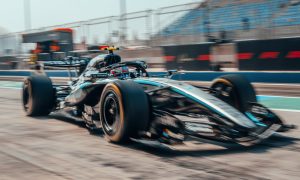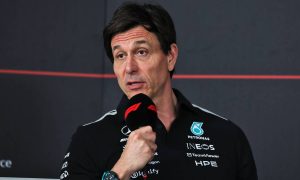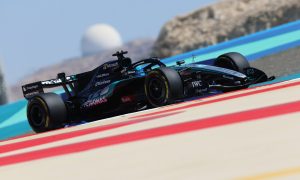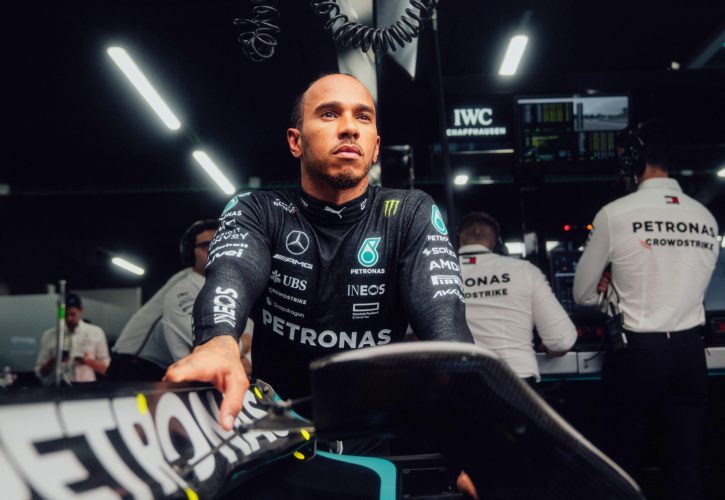
Lewis Hamilton says he knew even before the start of the 2023 F1 season that he would be facing “a long year” with Mercedes, and as it turned out the Briton’s fears were on the mark.
Despite their team's struggles and under-performance in 2022, the first year of F1’s new ground-effect regulations, Mercedes’ architects were convinced that pressing on in 2023 with their singular zero sidepod philosophy would pay dividends sooner rather than later.
However, their confidence wasn’t shared by Hamilton, a dissenting voice within the team who insisted that the Brackley squad ditch the ill-fated concept.
Any hopes the Briton may have had about being wrong about the car’s potential vicissitudes were shattered as soon as he shook down W14 at Silverstone on the day of its unveiling in February.
"I remember it feeling exactly the same," he said, quoted by the BBC in an extensive end-of-season interview with the media. "And that definitely was not a great feeling. I really had high hopes."
Actually, Hamilton’s doubts had crept in even before the car’s Silverstone roll-out.
"In February, when we do a download of where the car is going, I was a little more apprehensive, because the previous year it was like: 'The car is amazing, it's unique, no-one's going to have anything like it.' And then we get to the first test…
"So, I was a little bit more cautious when I was listening, and I was like: 'We will see.' And then the car had all these problems. I just knew it was going to be a long year."
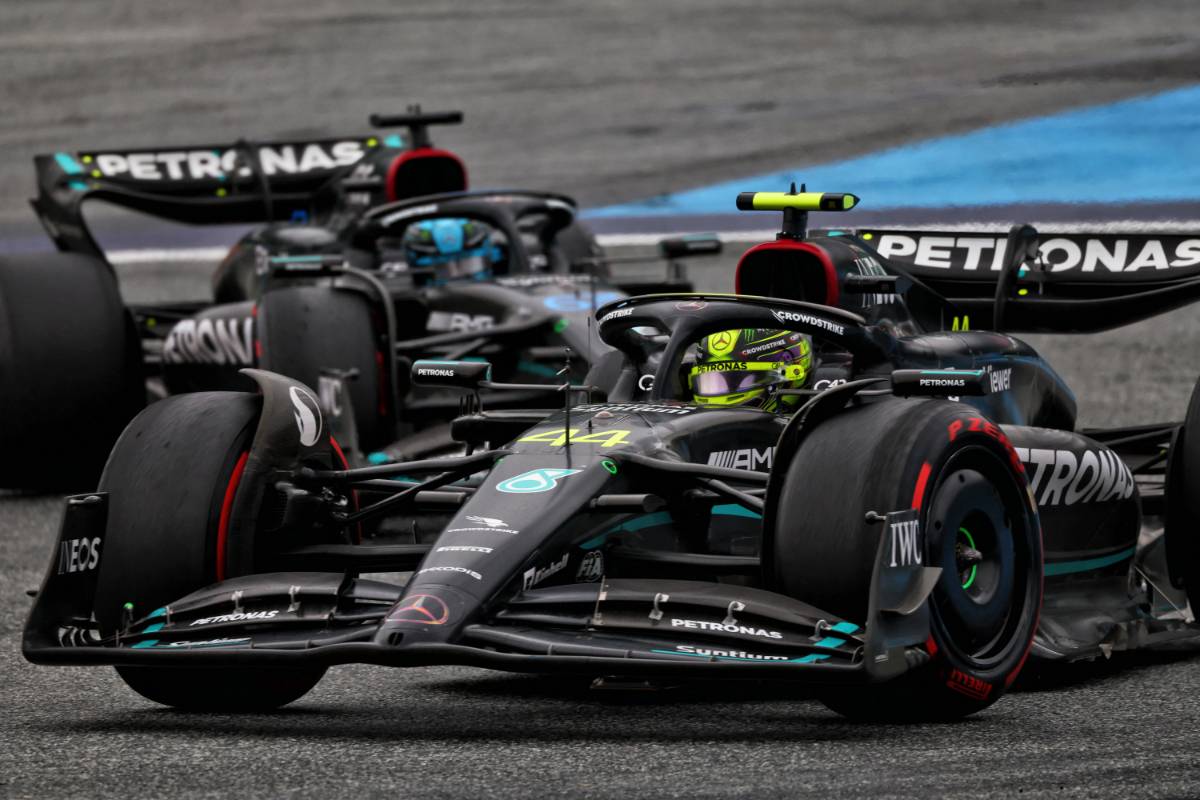
In Bahrain, at F1’s opening race of 2023, it didn’t take long for the seven-time world champion to confirm his concerns about the team’s direction.
After Friday’s opening practice, he bluntly told his crews that they were “on the wrong track”.
"I'm sure there were frustrations, because I had asked for certain changes, and they weren't done," Hamilton remembered.
"No-one knew exactly what the problem was. No-one knew how to fix it."
This compelled him to dig in and huddle up with his engineers, and have “big, big talks” with his team to gain a better understanding of the issues at hand.
"Having the experience of the previous year, I just applied myself, in terms of digging down, sitting with the guys. We were having much better meetings,” he explained.
"I was able to stay a lot more positive during the year and be like: 'It's going to be a long season, but let's not give up. Let's keep pushing towards getting the maximum out of the car, whatever that may be.'
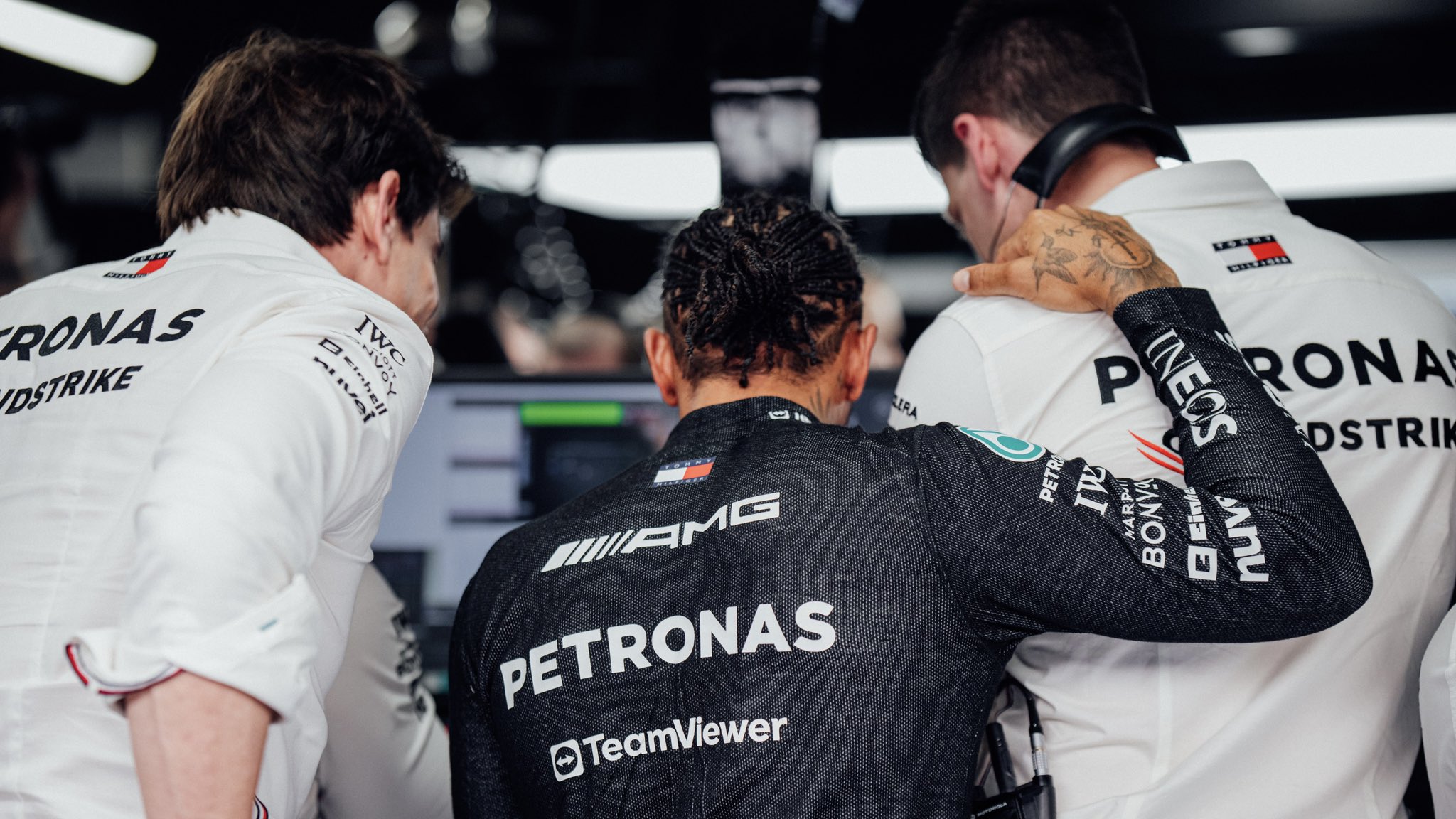
"I think for this year they thought: 'The fundamentals are good and we just have to go here.' And it was not the case. That's why I was frustrated in February, because they hadn't made the changes I'd asked for.
"But we didn't have a North Star necessarily at the beginning of the year, knowing exactly where we need to work towards. It's been kind of a zig-zag line trying to frickin' get to where we need to be.
"Every now and again, something positive happens. You're like: 'OK, that's it.' And then it shifts, so the goalpost is always moving, which is typical."
Mercedes eventually came to grips with its car’s troubles, but given their fundamental nature, changing and trailing new aero elements was not possible due to F1’s cost cap constraints.
The German outfit will therefore head into 2024 with an entirely new car, but with no previous – even partial – validation of its aerodynamic concept.
"I do believe we have a North Star now," Hamilton said. "Which I don't think we've had for two years. But still getting there is not a straight line.
"And there were just certain things, decisions that have been made, that just left you blocked at the end of a road, and you can't do anything because of the cost cap and all these different things.
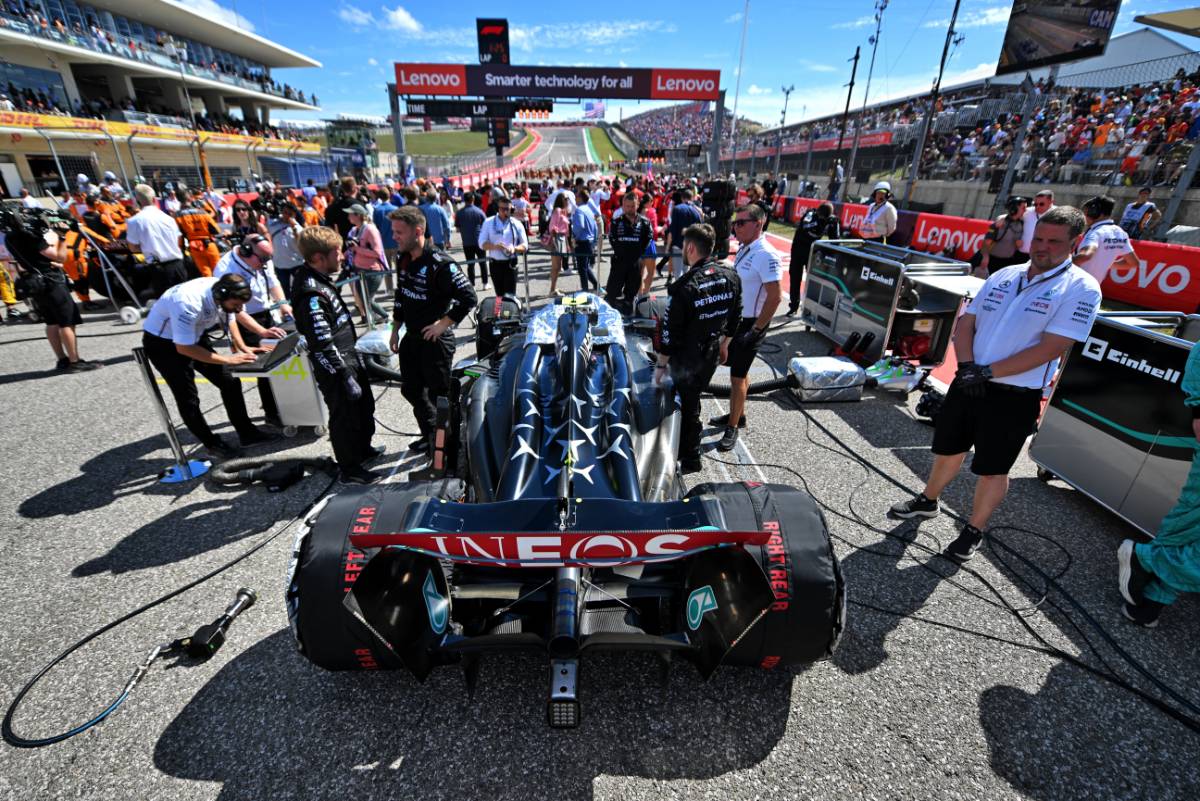
"If you look at the Red Bull - and they have done an amazing job - from Bahrain last year, they had a bouncing issue and they fixed it that week. And then you can imagine, if you're trying to build a wall, they are one brick after the other, just development, development, development.
"Maybe they added something and it didn't add performance. But they were still building. Whereas for us, we had to knock down the wall, if you like, in terms of aero.
"We had a lot of aero on that first car last year. We had to basically knock a ton of downforce off it and then slowly try to add. But every time we tried to add, it was worse. So we just didn't improve for a long, long, long time.
"I think we understand the car so much better. They have developed great tools in the background. So, naturally, I'm hopeful. But I'm not going to hold my breath."
Keep up to date with all the F1 news via Facebook and Twitter




